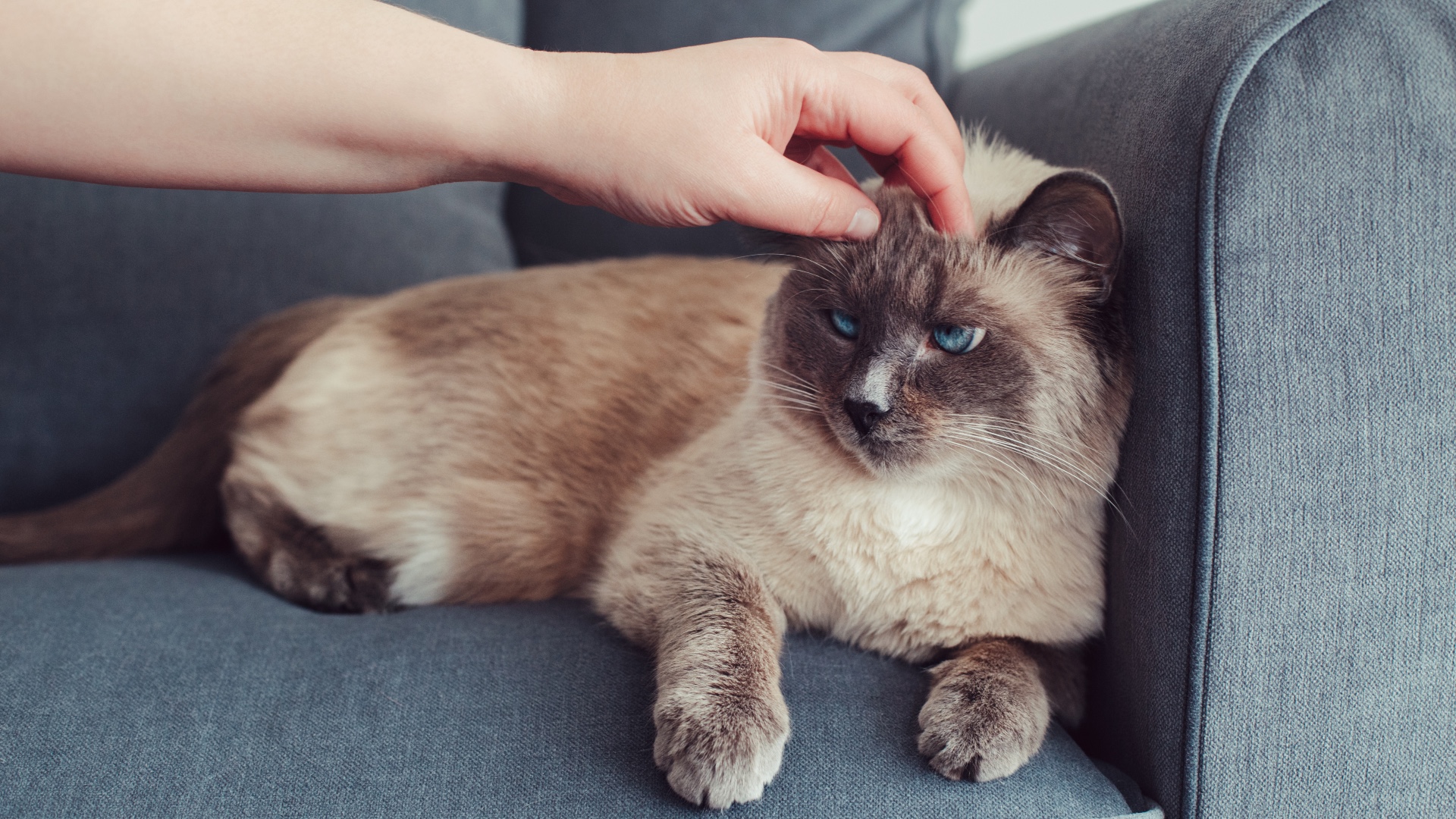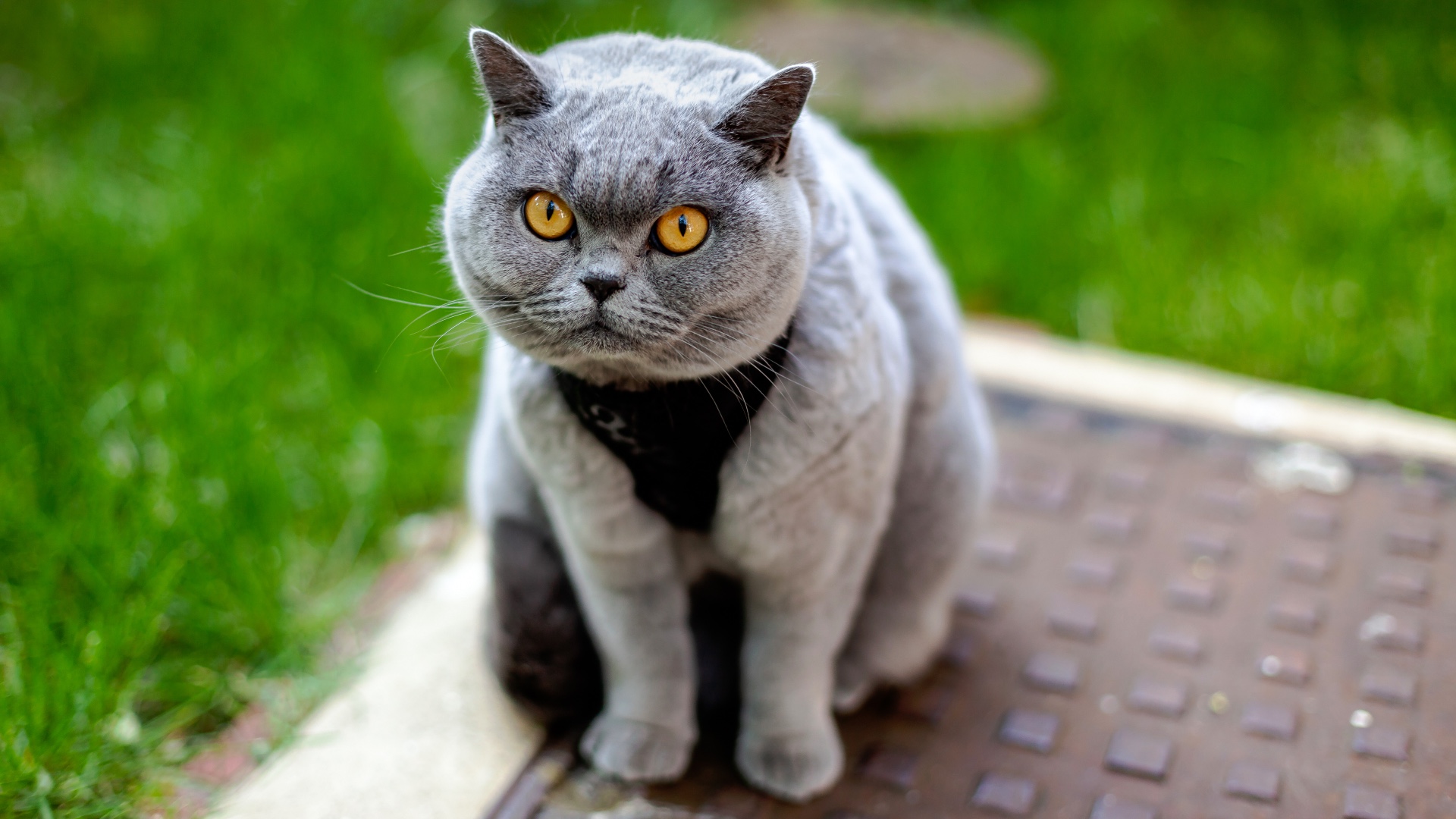How long does a cat hold a grudge? Do cats hold grudges and why?
Sharing a home with a cat who's avoiding you isn't easy, but how long does a cat hold a grudge for and is there anything you can do about it? Let's find out!

Get the best advice, tips and top tech for your beloved Pets
You are now subscribed
Your newsletter sign-up was successful
If your cat has ever given you the cold shoulder after some perceived slight, you have likely found yourself asking, “do cats hold grudges?” and, just as importantly, “how long does a cat hold a grudge?”
The good news is that cats probably don’t hold grudges, at least not in the sense that we humans typically do. The bad news, though, is that grudge-like behavior in cats can persist for a long time.
When you’re on the receiving end of that behavior, knowing that your cat isn’t harboring a deep emotional resentment may be only a small comfort!
Read on to learn more about why cats appear to hold a grudge and how long these behaviors can persist.
Do cats carry a grudge?
If you step on your cat’s tail or stumble over them on the way to your fridge in the middle of the night, your cat may keep their distance for a few days. This can certainly make you feel like your cat is holding a grudge, but is that really the case?
Although cats demonstrate behavior that can look like a grudge, their underlying motivations are probably a lot different from how we humans feel when we’re accused of holding a grudge.
When we think of a grudge, in a human context, we are referring to someone who harbors long-term feelings of anger or resentment towards someone else. It’s unlikely that this is what is motivating our cats’ behaviors when they give us the cold shoulder.
Get the best advice, tips and top tech for your beloved Pets
If you tripped over your cat last night and they are avoiding you today, this behavior is probably less an indicator of resentment than it is an indicator of your cat wanting to avoid being tripped over or injured again. In a cat, signs of a grudge are more likely to be caused by fear or anxiety than anger or resentment.
Do cats remember traumatic events?
Any cat owner can likely recall an experience supporting the idea that cats remember traumatic events. Cats that are attacked by a dog, for example, may be fearful around dogs in the future.
Cats that have been squirted with a spray bottle may run and hide when they see that spray bottle. In contrast, cats that have repeated positive experiences with humans, dogs, and other cats when they are young are more likely to approach others positively in adulthood.
How long does a cat hold a grudge?
It’s difficult to assess exactly how long a cat’s memory lasts. A recent study found that kittens weaned at eight weeks of age remember the smell of their mother into adulthood, suggesting that at least some feline memories can persist for a long period of time.
Unfortunately, our inability to communicate effectively across species means that we lack a true understanding of how much or how little the typical cat remembers over time, and how long traumatic memories may persist in a cat.

How can you tell if a cat is mad at their owner?
While cats may demonstrate a reluctance to be around their owner via a number of different signs and cues, it would probably be incorrect to chalk those signs up to the cat being “mad.” Is your cat really mad at you for grabbing him awkwardly as he was about to escape out the front door, or is he simply steering clear of you in order to avoid another uncomfortable interaction?
Signs that your cat may be avoiding you include:
- Hiding under the bed or other furniture
- Walking away or leaving the room when you approach
- Growling when you approach
- Avoiding petting or affection
- Avoiding eye contact
- Holding the ears back against the head
- Refusing to eat
- Twitching the end of the tail
While these signs don’t necessarily indicate anger, they do indicate the presence of a negative emotional state. If you have had a negative interaction with your cat, these signs could indicate that your cat does not feel comfortable in your presence.
Owners often attribute feelings of anger or spite to cats that urinate on their clothing or belongings. At this time, there is no evidence to suggest that these actions indicate malice. Urinating outside the litter box can have a number of different medical or behavioral causes, and this urination can occur on a variety of surfaces. Even when a cat’s inappropriate urination is behavioral in nature, it’s more likely to be caused by anxiety than anger.
How do I say sorry to my cat?
If your cat is avoiding you, it’s only natural to want to “make up,” in order to repair your bond and restore a good relationship with your cat.
Avoid the temptation to force affection on your cat. While you may think that a good snuggle would smooth things over, that approach is likely to backfire. Forcing your cat to be held or petted is likely to make the problem even worse!
Instead, encourage your cat to be near you in subtle ways. For example, sit down several feet away from your cat’s food bowl at mealtimes, to encourage your cat’s approach without actually pursuing your cat.
If your cat has a favorite bed or blanket, move that bed or blanket next to your usual spot on the couch, in order to subtly encourage your cat to come close. If your cat is playful, use toys that will allow your cat to engage from a safe distance, such as a teaser wand. The goal is to encourage your cat to approach you, in a subtle and low-key manner.
Avoid the temptation to chase your cat around your home or continually call out to your cat (“here, kitty kitty!”). Extra attention is likely to make your cat even more anxious. Instead, remain calm and give your cat space.
As time elapses without any stressful interactions, your cat’s comfort around you should eventually return. If the problem persists, consult your veterinarian to rule out underlying medical causes for your cat’s behavior changes and discuss possible treatment approaches.
Summary
Do cats hold grudges and, if so, how long does a cat hold a grudge? The only honest answer to that question is “it depends.” Cats can demonstrate behavior that looks like a grudge, but it probably doesn’t have the same underlying causes as a human grudge.
Instead, cats that suddenly begin avoiding their owners are more likely to be motivated by fear or anxiety. If your cat’s behavioral signs persist, or you note that they are accompanied by any signs of illness, consult your veterinarian.
Dr. Barnette is a graduate of the University of Florida, where she received both her B.S. in Zoology and her Doctor of Veterinary Medicine (DVM). She has 15 years of clinical experience as a small animal veterinarian, treating dogs, cats, and occasional exotic patients. She now works as a freelance veterinary writer, creating educational content for veterinarians, veterinary team members, and dedicated pet owners. Dr. Barnette lives in southwest Florida with her husband and daughter (plus two cats, a dog, and a rescued dove!) and enjoys kayaking, biking, and hiking. Learn more about Dr. Barnette at www.linkedin.com/in/catherinebarnette.

